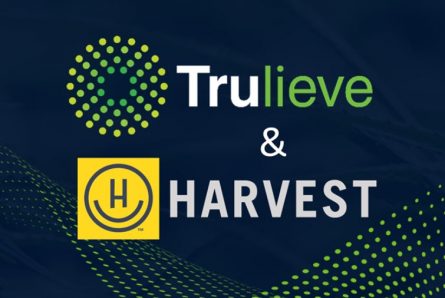Cannabis MSO Trulieve acquires Harvest Health in deal worth $2.1 billion

On Monday, May 10, Trulieve Cannabis Corp. announced that it will be purchasing Harvest Health & Recreation Inc. in a mega-deal valued at $2.1 billion.
Two U.S. multi-state operators are involved in the deal — Quincy, Florida-based Trulieve, which serves consumers in the northeast and southeast regions of the U.S., and Tempe, Arizona-based Harvest Health, which targets the west coast and northeast regions.
Shares of vertically-integrated cannabis company Harvest Health climbed 15 percent after the news broke, whereas Trulieve shares sunk by approximately three percent. Once fully operational, the new entity will have 22 cultivation and processing facilities spread across 11 states.
Combined, the facilities will have a total capacity of 3.1 million square feet and 126 dispensaries offering their services to the adult-use/medical cannabis markets scattered around the U.S.
“Harvest provides us with an immediate and significant presence in new and established markets and accelerates our entry into the adult-use space in Arizona,” said the CEO of Trulieve, Kim Rivers.
Terms of the deal between Trulieve and Harvest Health
Details of the Trulieve-Harvest deal confirm that Harvest shareholders will be on the receiving end of 0.1170 of a Trulieve subordinate voting share for each Harvest subordinate voting share owned.
The exchange rate indicates a price per Harvest share of $4.79. This is equivalent to a 34 percent premium over the closing price that was logged on Friday, May 14.
The deal is expected to catapult Trulieve to the forefront of the cannabis market in Arizona, while boosting its dominant share in Florida, where it currently maintains a 50 percent market share.
Cannabis is still federally classified as a Schedule I drug
The fact that cannabis remains a Schedule I drug at the federal level means that many companies operating in the high-demand industry, such as Trulieve, are limited in terms of financing. After all, the plant’s illegal status makes it almost impossible for cannabis companies to gain a helping hand via the federally insured banking system.
Nonetheless, legal sales of U.S. cannabis pulled in close to $18 billion last year without federal banking. If predictions from data analytics company Headset are correct, the U.S. cannabis industry is on-track to generate $22.7 billion in 2021; even without federal banking laws in place.
Moreover, Leafly reporters recently confirmed that the legal weed industry created around 321,000 jobs in 2020. All in all, the outlook remains fairly positive and especially so if the Senate passes the SAFE Banking Act. The measure, which would enable financial institutions to serve cannabis companies, was approved by the house on April 19.









